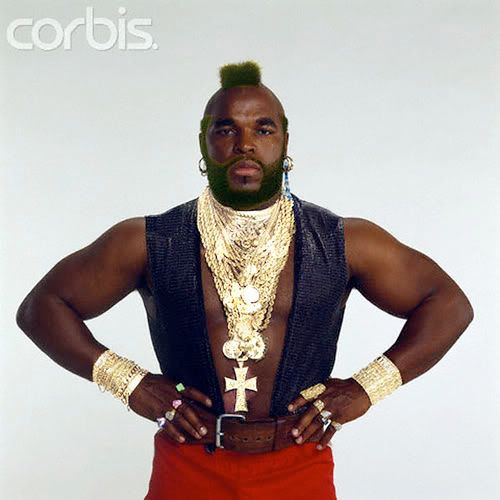
Okay I've been trying to get it together and wake early no later than 9am in the morning so I go to sleep no later than 11pm. As I was turning off the light, and I literally hop in the bed I did myself channel surf before I shut it down completely. As I seen Tyra on T.V I wanted to see what they were talking about, and it was absolutely something that needed to be on T.V today.
The show was about "What Is Good Hair"
In the African-American community, "good hair" often refers to hair that's not kinky, coarse or short. For me I have this thing for short hair, I can't seem to just go through with growing my hair out. Even though my hair is short I do get perms, but looking at the youtube videos about going natural more and more has giving me inspiration to start my transition I will keep a promise to this blog and myself that I will go natural. I haven't had a perm since late March, and usually it takes a few months or new growth for some people about 5-6 months. Then the natural stage will start, and chop that mess off.
Here is a video of a young lady that started her transition into natural.
HERE's SOME HISTORY just in case you don't know. ((copied and paste from: Encyclopedia of Hair))
African Americans faced discrimination on every front, including negative attitudes about their appearance. In the colonies and later the U.S, standards for "attractiveness" were based on white European looks…light skin tones and straight or gently wavy hair, along with fine-boned, delicate features for women. To further dehumanize African people, white sometimes referred to their hair as "wool," as though it belonged to animals rather than people. 
Faced with these obstacles, scalp diseases, and hard labor in the hot sun, many slaves shaved their heads or cut their hair short, wearing a hat outdoors. Women often used cast-off fabrics to make scarves or kerchiefs that covered their heads and gave some protection against the sun. Slaves expected to work in the home stayed neat in clean. Male slaves sometimes wore wigs like their white masters or a hairstyle that resemble white styles, while females house slaves braided and plaited their hair.
African women with long, wavy hair faced another threat: if a white mistress was jealous of a house slave, the mistress forced the slave to cut off her hair, making her less attractive…Slaves devised hair care tools, such as using wool carding tools to comb through tangles. Men used axle grease as both a dye and hair relaxer…Butter, goose grease, and other kitchen fats were used to moisturize dry hair. Sometimes after applying the fat, women styled their hair into curls with a heated butter knife. Flooded with messaes that straight fair was more attractive then tight curls, some African Americans, including slaves and freedom, tried concoctions designed to relax their hair.
Lighter-skinned blacks with straighter hair, along with white society, perpetuated the idea that tightly coiled or kinky hair was "bad" and was a "problem" that should be fixed if possible. After slavery was abolished in the 1860's some African Americans still continued to straighten their hair not just to conform with mainstream styles but also to avoid the mistreatment and legal and social discrimination that came with being nonwhite
((more of this article can be found at this site))



